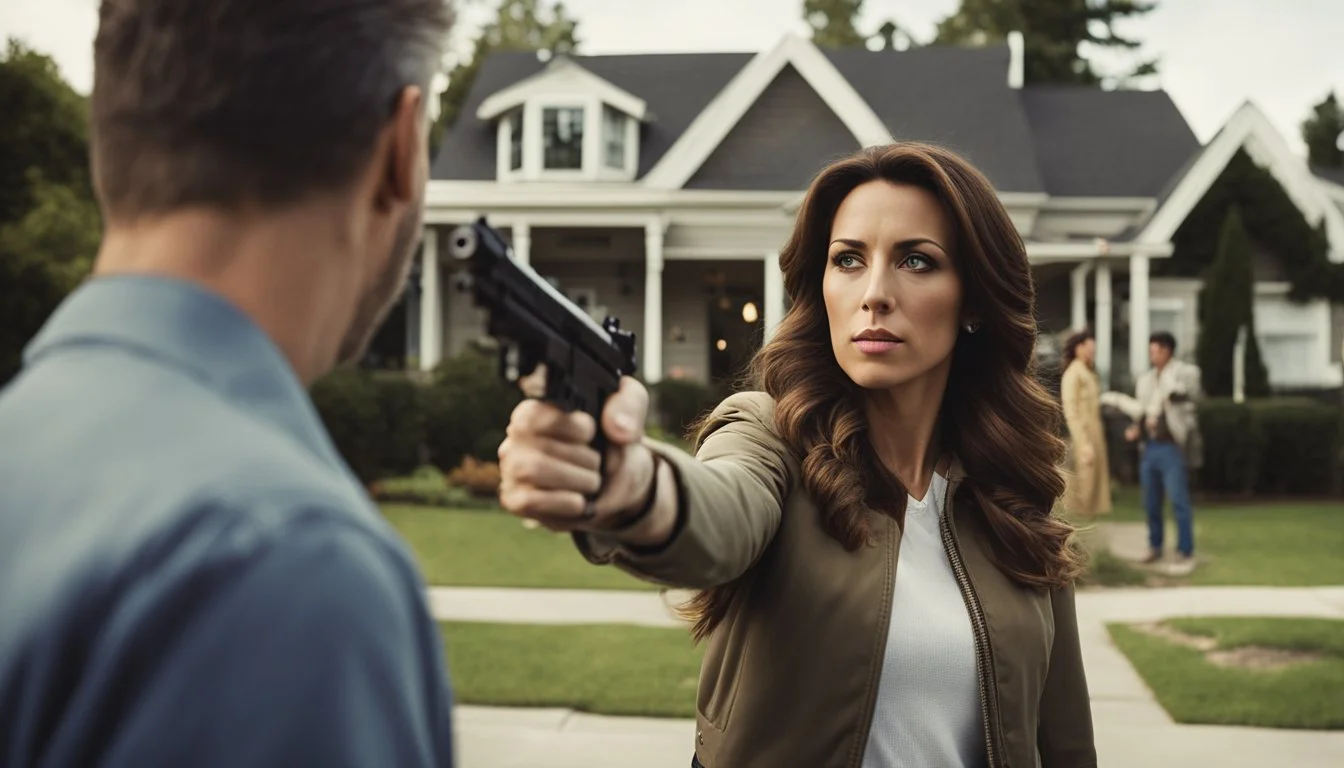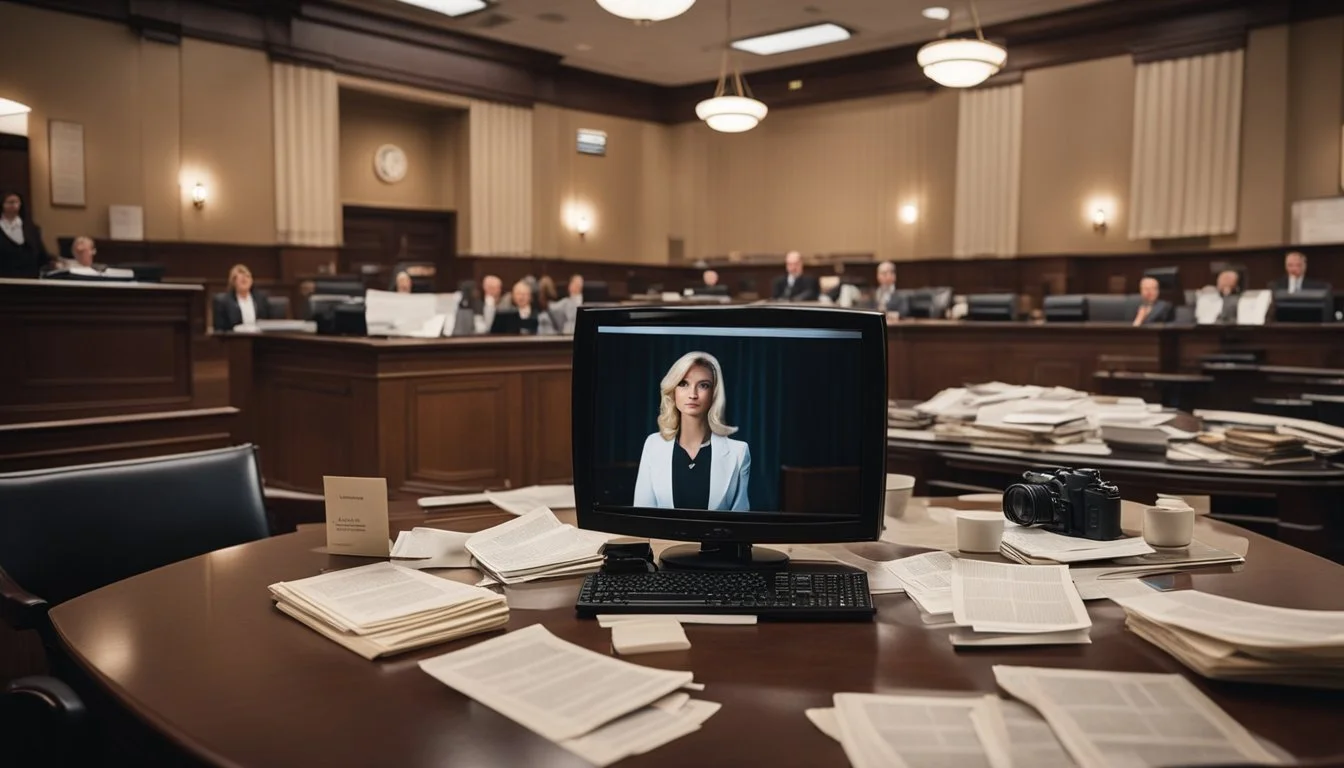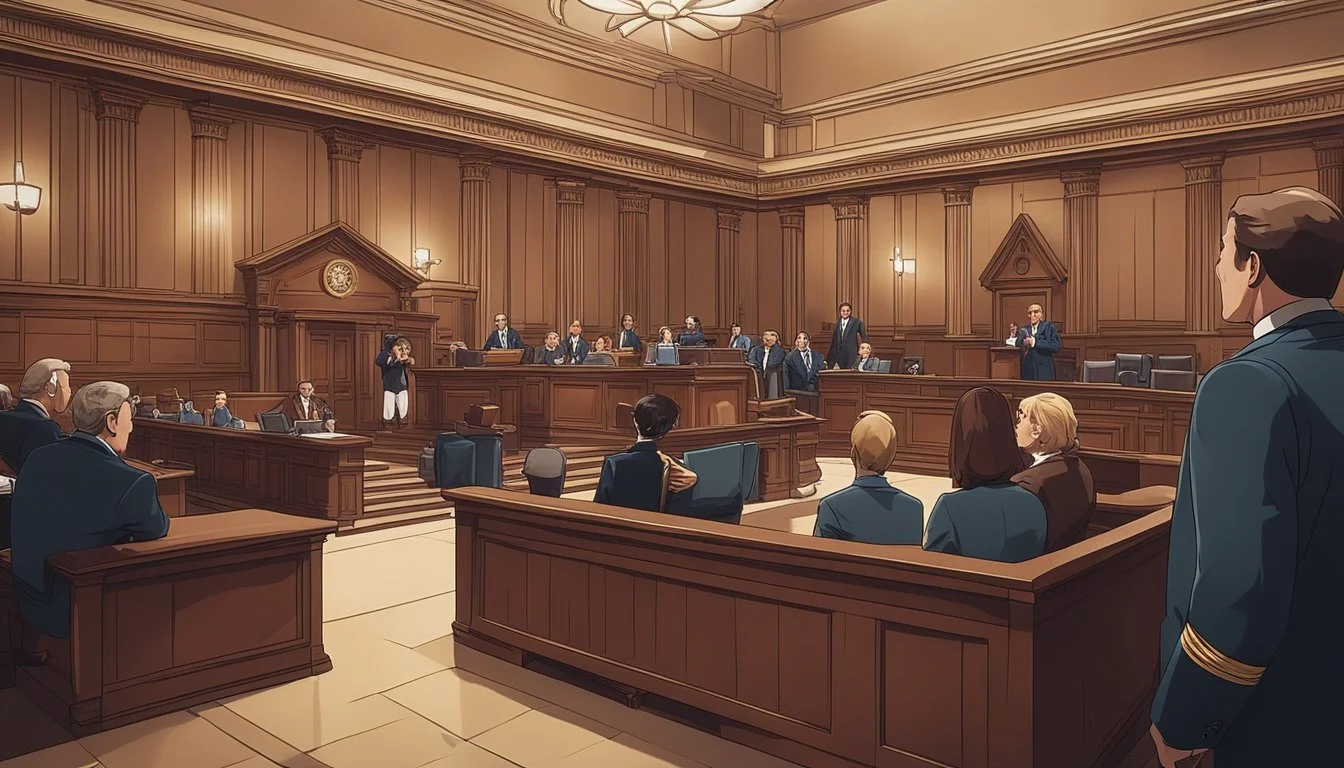4 Riveting Documentaries on the Long Island Lolita Case
Exploring Amy Fisher's Notorious Crime
The Long Island Lolita case captivated the nation in 1992 when 17-year-old Amy Fisher shot Mary Jo Buttafuoco, the wife of her lover Joey Buttafuoco. This shocking incident involving sex, violence, and suburban drama became a media sensation, sparking intense public interest and debate.
Several documentaries have been produced to explore the complex details and lasting impact of this infamous case. These films delve into the events leading up to the shooting, the aftermath for those involved, and the broader societal issues highlighted by the incident. Through interviews, archival footage, and expert analysis, these documentaries offer viewers a deeper understanding of this compelling true crime story.
1) "Amy Fisher: My Story" by Amy Fisher (1992)
"Amy Fisher: My Story" offers a unique perspective on the infamous Long Island Lolita case. This made-for-TV movie aired on NBC in December 1992, providing Amy Fisher's account of events.
The film stars Noelle Parker as Amy Fisher, with Ed Marinaro portraying Joey Buttafuoco. It depicts Fisher's version of her affair with Buttafuoco and the shooting of his wife, Mary Jo.
Directed by Bradford May, the movie aims to present Fisher in a more sympathetic light. It explores her claims of being manipulated into prostitution by an older man.
This adaptation stands out among the three TV movies produced about the case. It's notable for its cast members bearing a closer resemblance to the real-life individuals involved.
The film is based on interviews conducted by professional writer Sheila Weller while Fisher was incarcerated. It attempts to shed light on the factors that led to Fisher's actions.
2) "The Amy Fisher Story" by Edie Falco (1993)
"The Amy Fisher Story" stars Drew Barrymore as Amy Fisher, the teenager at the center of the notorious Long Island Lolita case. Edie Falco portrays Amy's mother, Rose Fisher, in this made-for-TV movie.
The film chronicles the events leading up to and following Amy's shooting of Mary Jo Buttafuoco, the wife of her alleged lover Joey Buttafuoco. It explores Amy's troubled relationship with her parents and her infatuation with Joey.
Barrymore's portrayal of Amy Fisher captures the complexity of the teenager's character. The movie delves into Fisher's motivations and the circumstances surrounding the crime.
Falco's performance as Rose Fisher provides insight into Amy's family dynamics. The film examines how parental neglect and societal pressures may have contributed to Amy's actions.
"The Amy Fisher Story" was one of three TV movies produced about the case in 1993, highlighting the intense media interest in the story at the time.
More information on "The Amy Fisher Story" (IMDB)
3) "Long Island Lolita: The Amy Fisher Story" (1993)
"Long Island Lolita: The Amy Fisher Story" is a made-for-TV movie starring Drew Barrymore as Amy Fisher. The film dramatizes the events surrounding the infamous 1992 shooting of Mary Jo Buttafuoco.
Drew Barrymore portrays Amy Fisher, a 16-year-old girl who becomes involved with Joey Buttafuoco, a married auto body shop owner. The movie depicts their affair and the escalating tensions that led to Fisher shooting Joey's wife, Mary Jo.
The film explores Fisher's obsession with Joey and her desire to replace his wife. It showcases the media frenzy that followed the shooting, which captivated the nation and earned Amy the nickname "Long Island Lolita."
"Long Island Lolita" aims to provide insight into Fisher's mindset and the circumstances that led to her criminal actions. The movie received mixed reviews but garnered attention due to its controversial subject matter.
This dramatization is part of a series of films that tackled high-profile true crime cases in the 1990s. It offers viewers a fictionalized account of one of the decade's most sensationalized stories.
4) "Amy Fisher: My Reckoning" by Shana Alexander (1993)
"Amy Fisher: My Reckoning" offers a detailed exploration of the Long Island Lolita case from the perspective of journalist Shana Alexander. The book delves into Fisher's background, her relationship with Joey Buttafuoco, and the events leading up to the shooting of Mary Jo Buttafuoco.
Alexander conducted extensive interviews with Fisher, her family, and others involved in the case. She presents a nuanced portrait of the troubled teenager, examining the factors that contributed to her actions.
The book addresses the media frenzy surrounding the case and its impact on all parties involved. Alexander critically examines the role of sensationalism in shaping public perception of the events.
"Amy Fisher: My Reckoning" provides a thoughtful analysis of the legal proceedings and their outcomes. It raises questions about justice, responsibility, and the treatment of juvenile offenders in the criminal justice system.
Learn more about "Amy Fisher: My Reckoning" by Shana Alexander
Historical Context
The Amy Fisher case unfolded against a backdrop of significant cultural and media shifts in 1990s America. This period saw the rise of tabloid journalism and 24-hour news cycles, which profoundly impacted public perception and media coverage of sensational crimes.
The 1990s in America
The early 1990s marked a time of economic recovery and technological advancement in the United States. Personal computers and the internet were becoming more widespread, changing how information spread.
Popular culture embraced grunge music and reality TV, reflecting a growing appetite for raw, unfiltered content. This era also saw increased concern about youth violence and sexuality, fueled by high-profile cases and moral panic.
The suburban landscape of Long Island, where the Fisher case occurred, represented a microcosm of middle-class American life and values.
Media Sensation and Public Reaction
The Amy Fisher case captivated the nation, becoming one of the decade's most widely covered crime stories. Tabloid newspapers and TV shows competed fiercely for exclusive details and interviews.
The media dubbed Fisher the "Long Island Lolita," drawing parallels to Vladimir Nabokov's controversial novel. This nickname highlighted the public's fascination with the case's themes of youth, sexuality, and violence.
Three separate TV movies about the case aired within a week of each other, underscoring its grip on popular culture. Public reaction ranged from shock and moral outrage to morbid curiosity.
The case sparked debates about teen sexuality, adultery, and media ethics. It also raised questions about the justice system's handling of juvenile offenders involved in violent crimes.
Key Figures and Main Events
The Long Island Lolita case revolved around three central figures: Amy Fisher, Joey Buttafuoco, and Mary Jo Buttafuoco. Their intertwined lives led to a shocking incident that captured national attention in 1992.
Amy Fisher's Background
Amy Fisher was born on August 21, 1974, in Merrick, New York. She grew up in a middle-class family on Long Island. As a teenager, Fisher attended Kennedy High School in Bellmore.
At 16, Fisher began working at an auto body shop owned by Joey Buttafuoco. This job would prove pivotal in the events that followed.
Fisher's troubled youth included allegations of drug use and promiscuity. These factors contributed to her tumultuous relationship with the Buttafuoco family.
Joey Buttafuoco and His Role
Joey Buttafuoco, born March 11, 1956, was a married auto body shop owner in his mid-30s when he met Amy Fisher. He resided in Massapequa, New York, with his wife Mary Jo and their two children.
Buttafuoco allegedly began an affair with the teenage Fisher in 1991. This relationship formed the backdrop for the ensuing drama.
His involvement with Fisher led to criminal charges, including statutory rape. The affair and its consequences severely impacted his marriage and public image.
The Infamous Incident
On May 19, 1992, Amy Fisher, then 17, arrived at the Buttafuoco residence in Massapequa. She rang the doorbell, and Mary Jo Buttafuoco answered.
Fisher shot Mary Jo in the head at point-blank range. The bullet entered near her right temple, causing severe injuries but not killing her.
After the shooting, Fisher fled the scene. Mary Jo, despite her injuries, provided a description of her attacker to the police.
The incident quickly gained national attention. Media outlets dubbed Fisher the "Long Island Lolita," a moniker that stuck throughout the ensuing legal proceedings and beyond.
Legal and Social Implications
The Long Island Lolita case had far-reaching consequences in the legal system and society at large. It raised important questions about statutory rape laws, media sensationalism, and public perceptions of crime.
Court Trials and Outcomes
Amy Fisher pleaded guilty to first-degree assault and served 7 years in prison. She was released in 1999 at age 24. Joey Buttafuoco faced charges of statutory rape for his relationship with Fisher. He pleaded guilty to one count and served 4 months in jail.
Mary Jo Buttafuoco initially supported her husband but later divorced him in 2003. The case led to discussions about age of consent laws and punishments for statutory rape.
Prosecutors faced challenges in building cases against both Fisher and Buttafuoco. The high-profile nature of the trials put intense scrutiny on the legal proceedings.
Impact on the Individuals Involved
The case profoundly affected the lives of Amy Fisher, Joey Buttafuoco, and Mary Jo Buttafuoco. Fisher struggled to rebuild her life after prison, facing ongoing media attention. She wrote books about her experiences and briefly worked in the adult film industry.
Joey Buttafuoco attempted to capitalize on his notoriety through reality TV appearances and minor acting roles. His reputation never fully recovered from the scandal.
Mary Jo Buttafuoco underwent numerous surgeries and suffered partial paralysis from the shooting. She became an advocate for crime victims' rights and wrote a book about her experiences.
The media frenzy surrounding the case made it difficult for all involved to maintain privacy or move on with their lives.




